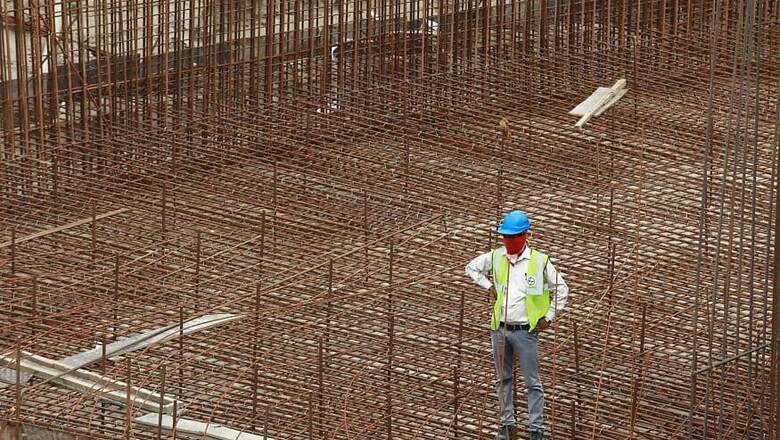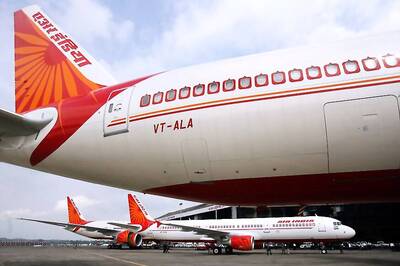
views
Recently a video of cabinet minister Nitin Gadkari surfaced on social media in which he was criticising NHAI officials for delays in project execution. People now who supported government in the past are also raising dissenting voices over efficiency issues.
Infrastructure development is the key to economic development and the government has also acknowledged this in various statements. As per a recent report issued by MOSPI, cost overrun in delayed projects is over Rs 4.29 lakh crore (20.85 % of original cost). Cost overrun is not only a waste of public money, but results in potential opportunity cost for all stakeholders in the form of delayed availability of asset for public use.
For a perspective it may be noted that as of December 2013, one-third of infrastructure projects of PSUs were delayed and cost overrun was 19.7% of original cost. Cost overrun is same under the NDA government as compared to the UPA and most of these projects are delayed due to time taken in getting regulatory approvals. Even the government is aware of the problem and a June 2019 report by KPMG highlights all these issues and remedial measures largely related to project management. India’s “Ease of Doing Business” ranking is improving consistently but at the same time government undertakings are struggling to get necessary approvals for implementation of projects.
It is necessary to set quantifiable and measurable goals to evaluate the performance of any individual or any department. The government prepares “Output Outcome Framework Report”, part of budget document, but it is not discussed in detail in media and the focus is always on tax rates, exemptions etc. This report talks about financial outlays on various schemes and its expected outputs/outcomes. This document includes the phrase: “Targets not amenable”, at various places, which means that people preparing the budget are not sure what they want to achieve out of the expenditure.
Governments across the world are facing unprecedented revenue crisis and so it is necessary to take a look at the measures taken by the government. In the previous year, the government introduced “Sabka Vishwas” scheme to settle indirect tax cases and boost falling revenue. As per the finance ministry, approximately Rs 3.6 lakh crore was locked up in dispute and the government received applications worth approximately Rs 89.8 thousand crore under the said scheme. Though the government claimed to realise Rs 39,000 crore from the scheme, it actually received only Rs 15,000 crores because the rest was already pre-deposited by assesse. In a nutshell, this scheme was not a success despite desperate calls made by the government to prevent the failure.
This year the government introduced “Vivad se Vishwas Scheme” to unclog the courts and realise the income tax revenue locked in litigation. As per Annexure 5 of the Receipt Budget of 2020, Rs 8.02 lakh crore of income tax demand was under dispute as of March 31, 2019. As per a statement given in Parliament by minister of state for finance Anurag Thakur, the government is able to realise merely Rs 9,538 crore till September 8, 2020. This is despite the fact that the CBDT chairman had specifically instructed officials to close all declarations filed in this scheme within the stipulated period, setting the upper limit of August 31.
Given the current status, this scheme is also bound to fail only because of indifferent attitude of tax officials. Its intent was to achieve the twin objectives of tax collection as well as litigation minimisation but it appears that none of them are going to be achieved. Just to cite an example, declarations filed by the assesse are not considered valid even if income tax department is at fault in matters relating to service of documents to the assesse and he is statutorily eligible to avail the benefit of the scheme. If things are not moving even after giving representation to higher authorities, including revenue secretary and CBDT chairman, then it is very simple to guess the level of effort required to correct the mess we are in. Citizens will not get any benefit by a noble intention unless that is implemented in true spirit by our bureaucracy.
The government got the bureaucratic legacy from its predecessor but it has been more than six years and the successive mandates were to change the status quo. The ruling party should also consider that winning elections with the help of social engineering is one thing but bringing capable administrators into the government is altogether different. The people will remember a government only when it brings changes that create a long-term impact.
(The author is a chartered accountant. Views are personal.)
Read all the Latest News, Breaking News and Coronavirus News here

















Comments
0 comment